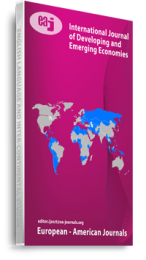In recent decades, the potential contribution of military expenditure to economic growth has been a subject of much controversy among development economists. While some contend that military expenditure has an adverse effect on economic growth as it crowds out investment. Others are of the view that military spending improves economic performance as it tends to expand aggregate demand. Taking advantage of recent developments in time series econometric methods, this paper re-examines the relationships between military expenditure and economic growth in China, from annual data for the period 1980–2011. The study used autoregressive distributed lag (ARDL) to test for the long-run and short run relationships while granger causality techniques used to examine the direction of causation. The results however indicate that there is an inverse relationship between economic growth and military spending in the short run while the long run results suggest that the correlation among the variables is inconclusive. Similarly, the granger causality tests revealed a unidirectional relationship running from GDP to military spending.
Keywords: China, Military expenditure; Economic growth; ARDL; Granger Causality

